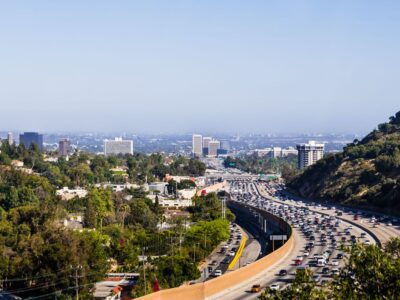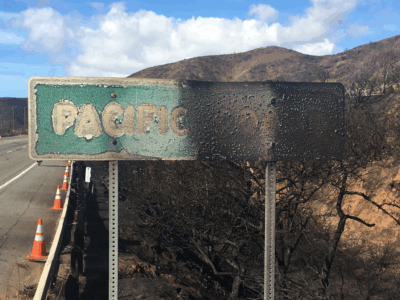Are Pandemics An Argument Against Cities?
COVID-19 spread shows governance matters more than density

“Density is really an enemy in a situation like this,” said Dr. Steven Goodman, an epidemiologist at Stanford University. “With large population centers, where people are interacting with more people all the time, that’s where it’s going to spread the fastest.”But at the same time, some of the densest nations around the world have had the most success fighting the spread of the virus, such as Taiwan, Japan, Korea, and Singapore. Taipei and Saigon city leaders in particular have been extremely effective in controlling the contagion. By contrast, low-density suburbs have been among the first sites where the virus took hold in the U.S., such as in Kirkland, Washington, and New Rochelle, New York. Similarly, the outbreak in Italy began in small towns outside of Milan. Given this evidence to date, governance appears to be far more important a factor than density in limiting the spread of the virus. Furthermore, density could actually be more helpful in controlling the spread, as governments can more easily enforce sheltering in place in smaller zones, while emergency response times and trips to the hospitals are typically faster than in far-flung rural areas (which also suffer a dearth of available medical facilities, as Dan Farber pointed out). But the question remains: could the pandemic dampen demand for housing in dense urban environments, regardless of the science? People may still (perhaps irrationally) fear a dense environment as a disease-spreader. Or they may emerge scarred from this era of “sheltering in place” and prefer larger homes with outdoor space, just in case another pandemic requires a new round of society-wide house arrest. History may provide some guide in answering this question, as low-density homes in the 1920s were certainly sold to the public as antidotes to disease-ridden, crowded cities. As Emily Badger noted in the New York Times, “[r]espiratory diseases in the early 20th century encouraged city dwellers to prize light and air, and something that looked more like country living.” But as policy makers weigh options to boost density, they should keep in mind the myriad public health benefits that density can provide. It can foster more physical fitness from increased walking and biking instead of sedentary, automobile-based sprawl; mental health benefits from strong and frequent community interactions; and stronger health care from pooling resources for big public hospitals. Furthermore, in an era of climate change, living in more compact environments can guard against extreme weather events. In California, for example, urban neighborhoods are among the most fire-safe during destructive and worsening wildfires, while also largely avoiding the electricity shut-offs needed to avoid igniting fires in high-fire sprawl zones. From a public safety perspective, density can now save lives during wildfires. And sheltering in place in a more compact environment can bring elements of joy and community during a time that can otherwise feature crushing physical and emotional isolation. Witness scenes of a balcony opera performance in Florence to help neighbors cope with the lockdown or police in Mallorca, Spain singing songs for neighbors while enforcing the quarantine. The human connection found in dense neighborhoods can not only help us get through this particular challenging time in human history, it can build the foundations for a healthier, more sustainable future. The current pandemic won’t change that reality.
Reader Comments
5 Replies to “Are Pandemics An Argument Against Cities?”
Comments are closed.







Although I am in no way a yimby,* I wouldn’t worry too much about long-term preference changes from this virus. Human beings like to be together.
As I see it, the essence of the argument is just that we quibble about *exactly how close* we have to be (to satisfy a concept of green enough, dense enough, “good” enough).
And except that I don’t like people trying to force their ideas on me through ill-conceived state legislation, I don’t even think it’s that important of a question. There can be many answers, and I think that’s just fine. CC is *the* problem. Everything else is details.
And I don’t think (mostly young) people will stop moving to the big city because of this virus.
I will say there are a ton of very interesting questions about trust and community reliance and resilience and all that. For example, how much do I trust people in a 50-unit building to have just washed their hands when they get in an elevator? Not at all! How much do I trust myself to remember not to touch my face? Not at all! (You know those cones that vets put on dogs? We should have them for our hands. I don’t want to wear one on my head – too embarrassing.) All we can do is try our best and try to remember to wash our hands a lot. Eat oranges. And that’s true every time I leave the house, suburb or city.
*I will admit this much – I am glad if some of the steam is let out of the alleged housing “shortage” push, as I think some very half-baked ideas were gaining traction in the California legislature, which lacks immunity to silly ideas. I sure hope those idiots don’t try to ram something through now. But I wouldn’t put it past them.
I hope you won’t catch this thing – otherwise with whom would I squabble? Curbed is sort of dead now, there’s no one to debate with. Have chicken soup, take a nap. Even if you feel okay – it can’t hurt!
So … I still think cities will manage to survive, but I do think there will be some effect, which I can’t estimate. A while after I put up my comment, I had to go buy food. And I had to wait about 20 minutes in line just to get in the store, supposedly bc the city of LA had had a complaint about this Trader Joe’s (the one on Vine).
This kind of thing is really a big turn-off. I am glad if the store controls how many people can be in it at once – which I am sure they have to do all the time anyway – but one would hope that people could behave like adults and distance themselves and not need a darned babysitter. I’d rather have to make an appointment than have to stand in line – in the sun – like a 20 something at a nightclub. (Kids that age don’t seem to mind. It’s rather endearing. I think they just count it as time with their friends. Well, back when that was happening.) I don’t know if the City was to blame, or the store.
And yes, density makes all these problems harder to deal with. Interestingly enough, there weren’t that many people in line, relative to how dense this area is supposed to already be. Maybe many people have already left the area.
https://nymag.com/intelligencer/2020/03/shelter-in-place-in-coronavirus-crisis-what-does-it-mean.html
CJ, there is a paywall. Was there something particular you were referencing? I am just curious.
For thousands of years, since before the time of Pericles, cities have been prone to plagues and pandemics. Well-organized and responsive governments and societies have had advantages with plagues, and with modern science well-employed, we have greatly diminished their frequency and relative impacts. Alas, this success has arguably led us to neglect active preparation for pandemics – hence our current condition. Organization and preparation seems clearly more important than density.